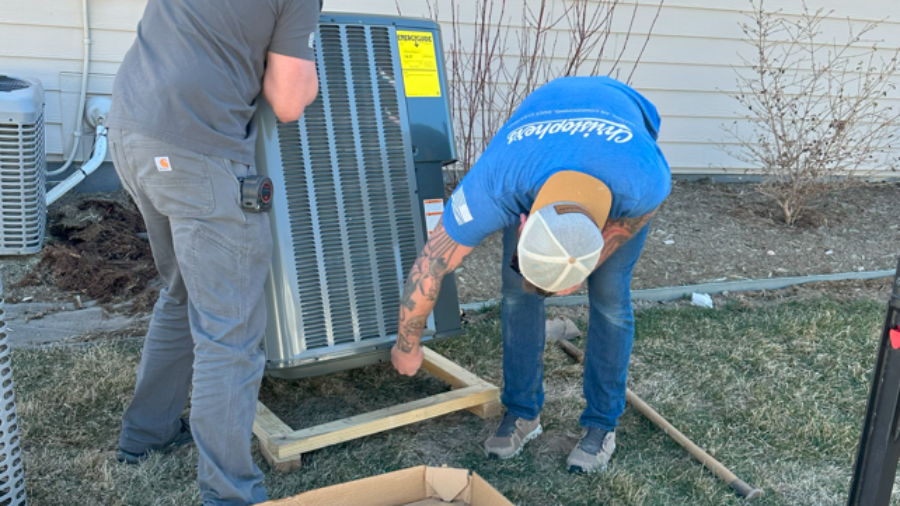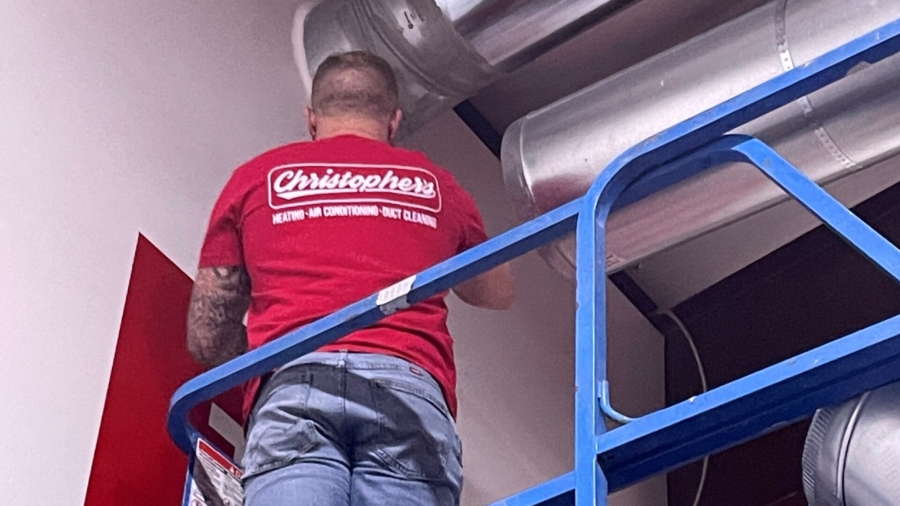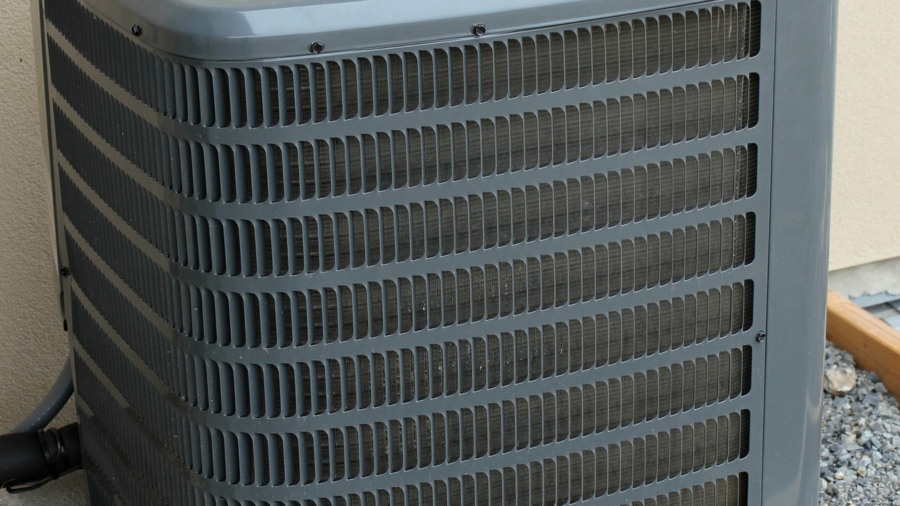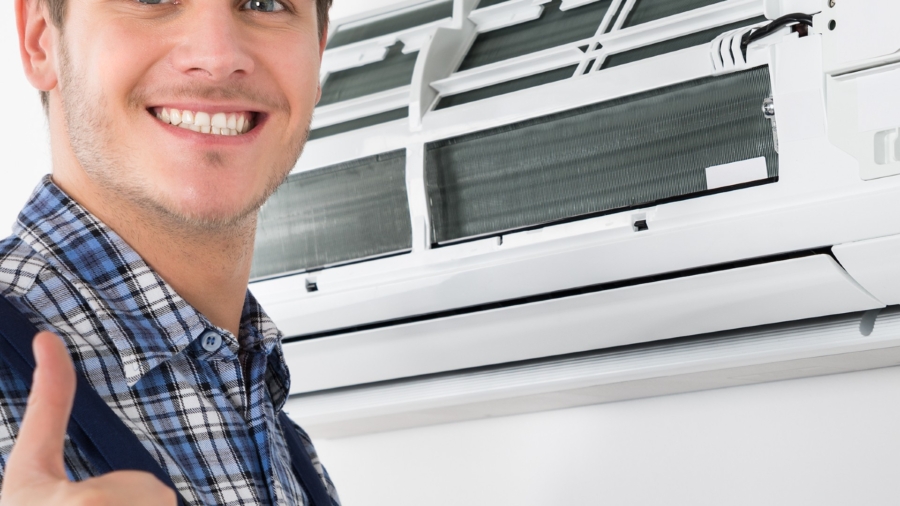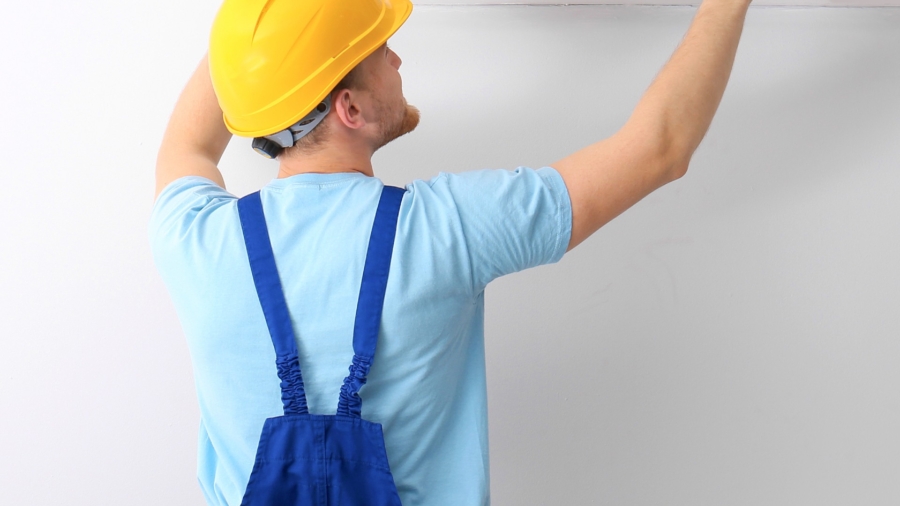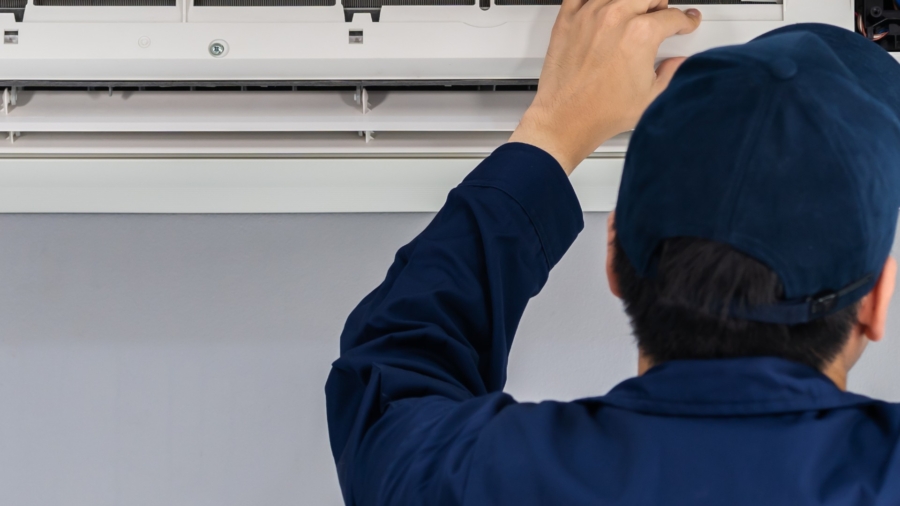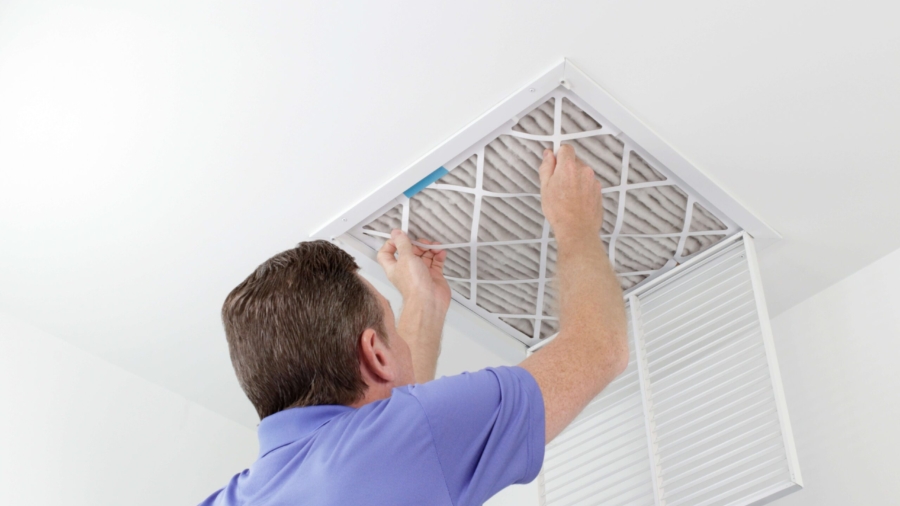What to Expect During a Professional Maintenance Visit
During a scheduled maintenance visit, our HVAC technician undertakes a series of essential tasks designed to guarantee the optimal and safe functioning of your air conditioning system. These tasks are pivotal for achieving peak performance, conserving energy, and prolonging the lifespan of your air conditioner. The process commences with an inspection of the outdoor unit, also referred to as the condenser unit. This entails scrutinizing condenser coils for dirt and debris, with subsequent cleaning using specialized coil cleaners as needed. Our technician also meticulously assesses the fan motor, electrical connections, and service valves, confirming their proper operation and secure positioning.
Moving to the indoor unit or air handler, the technician shifts focus to the evaporator coil, performing a comprehensive inspection and cleaning where necessary. Attention then turns to the air filter, which is evaluated and replaced if required. Additionally, the examination extends to drain lines and the condensate drain, checking for any potential obstructions or leaks that might compromise the system’s integrity.
Electrical controls and wiring connections undergo a thorough inspection to ensure their security and optimal functionality. Our technician also meticulously examines refrigerant levels and diligently seeks out any indicators of refrigerant leaks. Finally, the entire system’s performance is validated, encompassing a meticulous evaluation of return and supply temperature differentials, alongside an assessment for possible air leaks within the ductwork.
By adhering to a consistent schedule of professional maintenance visits, you proactively protect your system against costly repairs, enhance energy efficiency, and ensure safe and dependable operations.
Outdoor Unit
Maintaining the outdoor unit of your air conditioner is crucial for the overall performance and efficiency of your system. Neglecting this important component can lead to reduced airflow, increased energy consumption, and expensive repairs. During one of our professional maintenance visits, our HVAC technician will pay special attention to the outdoor unit, also known as the condensing unit, to ensure its proper functioning.
Our technician will start by carefully removing any debris, such as leaves, twigs, or dirt, that may have accumulated around the unit. This step is important because clogged airflow can decrease the efficiency of your system. We will then inspect the unit panels for any signs of damage or wear and tear.
Proper clearance around the condensing unit is essential for its optimal performance. Our technician will ensure there is enough space around the unit to allow for adequate airflow. This will prevent any restrictions that could lead to overheating or decreased cooling capacity.
Indoor Coil
One important task that our technician will perform during a professional maintenance visit for your air conditioning system is cleaning the indoor coil. The indoor coil, also known as the evaporator coil, is an essential component in the heat exchange process that enables your air conditioner to efficiently cool your home.
Not all central air conditioning systems have an indoor coil, but if yours does, it requires regular cleaning to ensure optimal performance. Over time, dust and debris can accumulate on the coil, which can hinder its ability to absorb heat from your home’s air. This can lead to decreased cooling capacity and energy inefficiency.
To clean the indoor coil, the technician will typically use a general cleaning spray that is specifically designed for evaporator coils. They will carefully apply the spray to the coil, allowing it to penetrate and break down any dust or debris. Once the spray has had time to work, the technician will use a soft brush or cloth to gently wipe away the loosened particles.
Drain Lines & Condensate Drain
Maintaining the drain lines and condensate drain is an important task during a professional AC maintenance visit. Clogged drain lines can lead to water leaks and damage to your air conditioning unit. Here are the steps we take to ensure proper maintenance of the drain lines and condensate drain:
1. Locate the Condensate Drain Line: The condensate drain line is usually a white PVC pipe that is attached to the indoor unit of your AC system. It is responsible for removing the excess moisture that is created during the cooling process.
2. Unscrew the Top of the Vertical PVC Pipe: Start by unscrewing the top of the vertical PVC pipe connected to the indoor unit. This will allow you to access the inside of the drain line.
3. Clear Any Blockages: Using a stiff wire, carefully pass it through the drain line to clear any blockages. Over time, debris and algae can accumulate, leading to clogs in the drain line.
4. Pour Chlorine Bleach: After clearing the blockages, pour a cup of chlorine bleach down the drain line. This helps to prevent the growth of algae and mold, keeping the drain line clear of any obstructions.
5. Check for Debris and Proper Drainage: Ensure that the condensate drain is free of debris and that moisture can drain properly from the system. A clogged drain line can lead to water leaks that can harm your AC system and surrounding areas.
Air Handler & Air Filter
The air handler and air filter are two key components in maintaining the efficiency and performance of your air conditioning system. The air handler, also known as the indoor unit, is responsible for circulating the cooled air throughout your home. It houses the evaporator coil, blower motor, and other essential parts of your AC system.
Located inside the air handler, the air filter plays a crucial role in maintaining indoor air quality. It traps dust, dirt, pollen, and other airborne particles to prevent them from circulating in your home. This not only keeps the air clean and healthy to breathe but also protects the internal components of the system from potential damage.
Regular maintenance of the air filter is essential. Depending on the type of filter, it should be either cleaned or replaced every one to three months. Clogged filters restrict airflow, forcing your AC system to work harder and consume more energy, resulting in higher energy costs. Additionally, restricted airflow can lead to poor cooling performance and uncomfortable indoor temperatures.
Ensuring that your air handler is clean and the air filter is regularly maintained will not only improve the efficiency and performance of your air conditioning system but also contribute to better indoor air quality and lower energy consumption.
Entrusting your air conditioning system to a professional maintenance visit brings forth a range of comprehensive advantages that extend well beyond immediate enhancements. By relying on the expertise of a skilled HVAC technician, you’re ensuring the prolonged life and peak performance of your unit. From meticulous assessments of critical components such as condenser coils, fan motors, and refrigerant levels to the optimization of airflow through outdoor unit clearance and the protection of drain lines, every facet of your system receives meticulous attention. The consistent upkeep of your air handler and air filter contributes to elevated indoor air quality and heightened system efficiency. Christopher’s Heating is prepared to deliver these transformative benefits through our experienced technicians, offering reassurance, energy savings, and an optimized indoor environment. Instead of waiting for complications to arise, take the proactive step and schedule a professional maintenance visit today!


